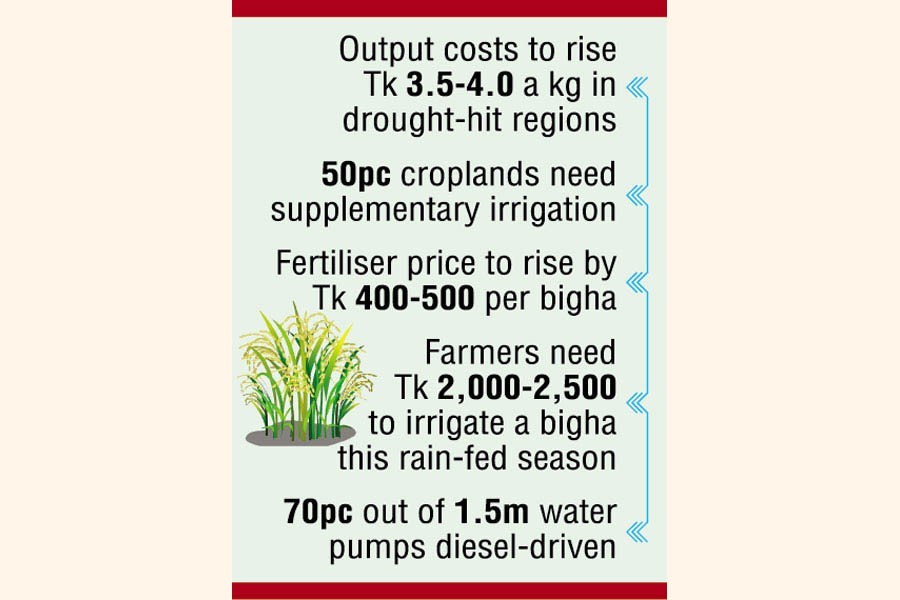The latest hike in fuels, including diesel, deals a double blow to farmers after urea this peak Aman season that comprises 37-38 per cent of the total rice supply.
A 42-per cent hike in diesel price is set to affect the total value chain of the commodity amid a rise in output costs as well as transport fares, say experts.
Although Aman rice cropping is mainly rain-fed, record low rain during the June-July period countrywide has forced farmers to supplementary irrigation.
The latest hike in diesel price has just intensified woes of the peasantry already in a fear of production fall amid a potential drought.
The Department of Agriculture Extension (DAE) says more than 50 per cent of Aman farmlands need supplementary irrigation in July and August for low rain.
The DAE has also asked its workers to motivate farmers for supplementary irrigation in order to maintain robust paddy production.
Irrigation costs have increased by Tk 600-800 per bigha or 33 decimals further in parts of Rangpur, Rajshahi, Mymensingh, Dhaka, Chattogram and Barishal regions, according to sources.
"The total spending on a bigha for irrigation has increased to Tk 2,500 when it was set at Tk 1,700 in July with the opening of deep tubewells in our village," said Mahfuz Shah, a farmer at Kundapukur in Nilphamari Sadar.
The area witnessed a good rain for last few days but it is not enough to transplant Aman, he added.
"We can't wait for rain as it is the perfect time to plant the seedlings."
Jainal Abedin, a farmer from Manikganj's Ghior upazila, says they need more fertiliser than other districts.
"We need 80-90 kg of fertiliser even in Aman season. Average cost per bigha has increased by Tk 400-500 this year amid a hike in urea and other fertilisers."
Prof Golam Hafeez Kennedy, farm economist and value-chain expert, says farmers need to spend an additional Tk 60 billion on irrigating more than 3.0-million hectares of land this year.
Fertiliser costs may also rise by minimum Tk 17 billion, he predicts.


